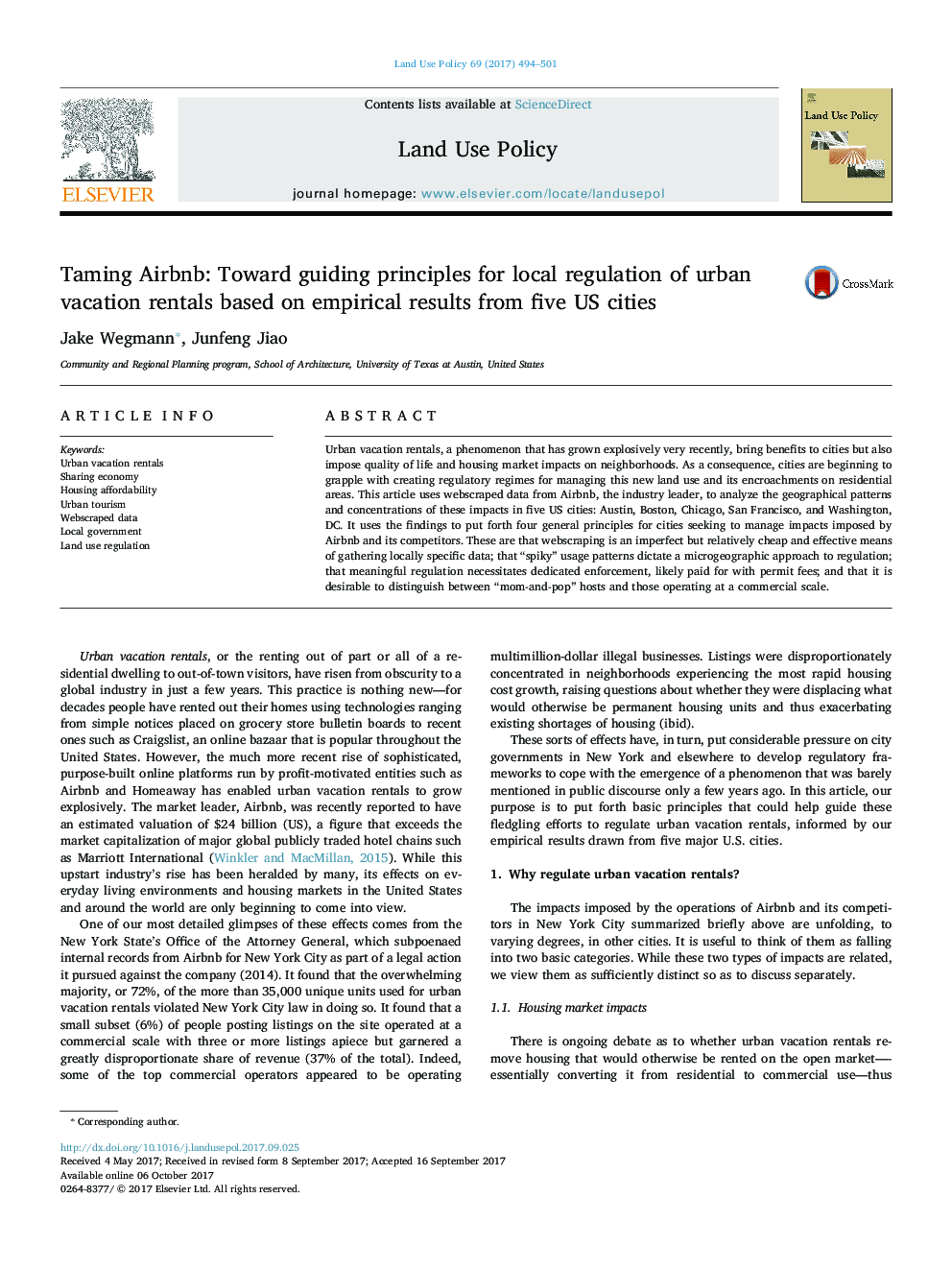| Article ID | Journal | Published Year | Pages | File Type |
|---|---|---|---|---|
| 6460436 | Land Use Policy | 2017 | 8 Pages |
Urban vacation rentals, a phenomenon that has grown explosively very recently, bring benefits to cities but also impose quality of life and housing market impacts on neighborhoods. As a consequence, cities are beginning to grapple with creating regulatory regimes for managing this new land use and its encroachments on residential areas. This article uses webscraped data from Airbnb, the industry leader, to analyze the geographical patterns and concentrations of these impacts in five US cities: Austin, Boston, Chicago, San Francisco, and Washington, DC. It uses the findings to put forth four general principles for cities seeking to manage impacts imposed by Airbnb and its competitors. These are that webscraping is an imperfect but relatively cheap and effective means of gathering locally specific data; that “spiky” usage patterns dictate a microgeographic approach to regulation; that meaningful regulation necessitates dedicated enforcement, likely paid for with permit fees; and that it is desirable to distinguish between “mom-and-pop” hosts and those operating at a commercial scale.
